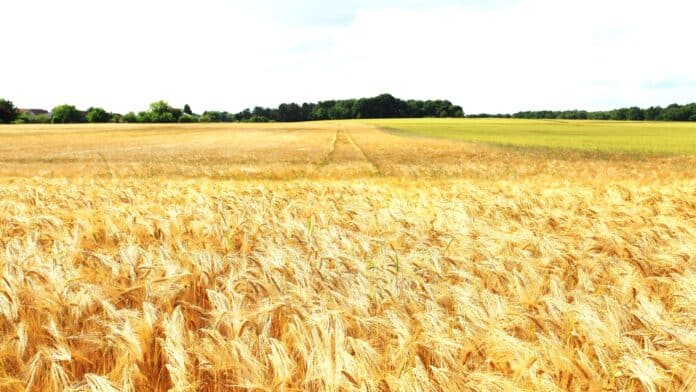The closure of Food for Peace, a long-standing U.S. government program that provides food aid to vulnerable nations, has sent shockwaves through the Kansas agricultural sector. Administered under the U.S. Agency for International Development (USAID), the program was suspended after USAID shut down due to budget cuts.
The Kansas Agricultural Economy at Risk
Kansas, a major producer of wheat and grain sorghum, is among the states most affected by the program’s closure. Before its suspension, Food for Peace purchased a significant share of Kansas’s agricultural output, with wheat and sorghum accounting for approximately $355.6 million annually in direct sales. Without this guaranteed demand, oversupply will lead to a price collapse, reducing market value for these essential crops.
A conservative estimate suggests a 30% drop in wheat and sorghum prices due to the loss of this large-scale buyer. With Kansas producing roughly 319 million bushels of wheat and 190 million bushels of grain sorghum, the financial impact onis projected at $1.01 billion in lost revenue this year alone.
A Brief History of Food for Peace
Established in 1954 under the Agricultural Trade Development and Assistance Act, Food for Peace has been one of the largest food aid programs in the world. Initially designed to provide U.S. agricultural surpluses to nations facing hunger and malnutrition, the program evolved to become a cornerstone of American humanitarian efforts. By purchasing billions of dollars in commodities from American farmers—particularly wheat and grain sorghum—the program ensured stable markets for producers while fulfilling global food needs. In recent years, annual spending on Food for Peace hovered around $2 billion, with a substantial portion directly benefiting Kansas farmers.
The USDA Transition: A Slow Path to Recovery
In the absence of USAID, the USDA is now expected to oversee food aid distribution. However, this transition will be anything but swift. The USDA has faced significant budget reductions in recent years, limiting its ability to rapidly assume a program of this scale. Rebuilding Food for Peace under the USDA will require new legislation, restructuring, and funding allocation, processes that could take anywhere from two to five years under optimistic estimates. During this period, Kansas farmers will continue to bear the brunt of the economic losses.
The Ten-Year Outlook: A Devastating Blow to Kansas Agriculture
If the program remains defunct for the next decade, the economic toll on Kansas could surpass $10 billion in lost revenue. The long-term impact will likely include:
- Massive farm closures as small and mid-sized producers struggle to survive without a reliable buyer.
- Job losses across grain storage, transportation, and processing industries.
- Declining rural economies, with local businesses suffering from reduced farmer incomes.
- Increased reliance on federal subsidies, straining an already stretched USDA budget.
Without immediate action to restore Food for Peace or provide alternative solutions, Kansas’s agricultural industry faces a prolonged period of economic distress. The coming months will be critical in determining whether the state can weather this storm or face a long-term downturn that reshapes its agricultural landscape permanently.





